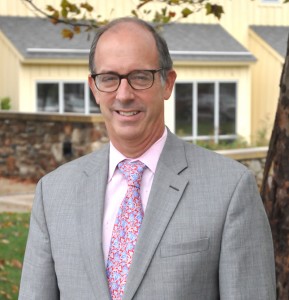Ross argues that population changes need to be weighed in revised funding formula
By Mike McGann, Editor, UnionvilleTimes.com
Fiscal crisis or not, he business of the commonwealth of Pennsylvania will have to go on. While State Rep. Chris Ross (R-158) notes he has a clear focus on the financial crisis and the upcoming budget — which was touched on here earlier this week — Ross notes there are other issues that will have to be tackled in the new legislative session just now under way.
And one of the issues that Ross, who represents a number of Chester County school districts, including Unionville-Chadds Ford, is talking about is the school funding formula. While he makes it clear he’s not looking to hurt poorer districts, he said that he thinks it is important to address population changes — and their impact on funding.
“I think we have to look at fixing the funding distribution formula,” he said. “I think the growing districts have been hurt.”
While school districts in much of Chester County have seen rapid growth over the last three decade, some urban and rural districts have seen a decline in enrollment, as the state’s population has shifted toward suburban areas. “Hold harmless” agreements in the funding formulas have meant that there could be no reduction in funding for the areas losing population, so they continue to see a higher per-student state funding number, even after poverty is factored in.
While Ross insists need should still be a factor in the state education funding formula, there needs to be a better measurement of student population.
“I’d like to see the formula rebuilt with more accurate data regarding student growth and poverty,” he said.
Another issue on the agenda is reapportionment — the creation of the state’s new state and congressional legislative districts. While there may be some contention over the congressional seat — Pennsylvania is slated to lose one of its current 19 seats — Ross notes that law makes the shape of districts less subject to gerrymandering than most people might think.
“We’re subject to judicial review,” Ross said, noting that the 2001 redistricting plan was tossed out because a congressional district had, he said, 10 more voters than the neighboring district.
Still, the one thing he knows is that the 158th will shrink in geographic area, because of the growth in population. What towns will move out and whether Chester County might get a new state house district of its own — or whether more districts in neighboring counties will grow deeper into the county has happened last time — remains to be seen.
Another area Ross wants to work on are the state’s tax sale laws. Right now, Ross said that as many as five different laws may apply and the layers have created a morass for both homeowners trying to get out from under, as well as the taxing authorities trying to recoup lost tax dollars.
“We need to get rid of all these laws,” he said. “And get one law with clear protections for the property owner.”
Elsewhere, there are a number of fixes to laws and state policies, Ross said, that need adjusting. He points to laws and policies involving infrastructure and sewage disposal that push property owners to do the opposite of what the state actually desires.
“It’s important that we get regulation and policy in concert,” he said.
Along those lines, he hopes to help local municipalities cope with mandates from the federal Environmental Protection Agency on storm water run off relative to local streams such as the Brandywine and Red Creek.
He says understands some of the confusion local officials might have with the new requirements, noting that it seems that the EPA and the state Department of Environmental Protection aren’t as yet, on the same page in terms of the requirements.
Ross says he does applaud the efforts of the Brandywine Valley Association to pool as many of the townships coming under the requirements, to work together and come up with more of a regional approach to the issue.
“The fixes for this are going to be found on a watershed basis,” Ross said.







